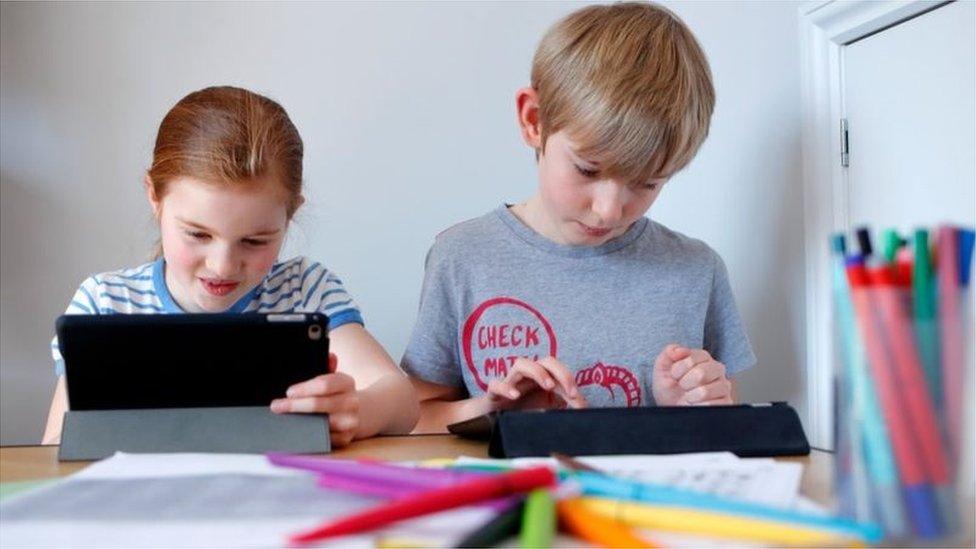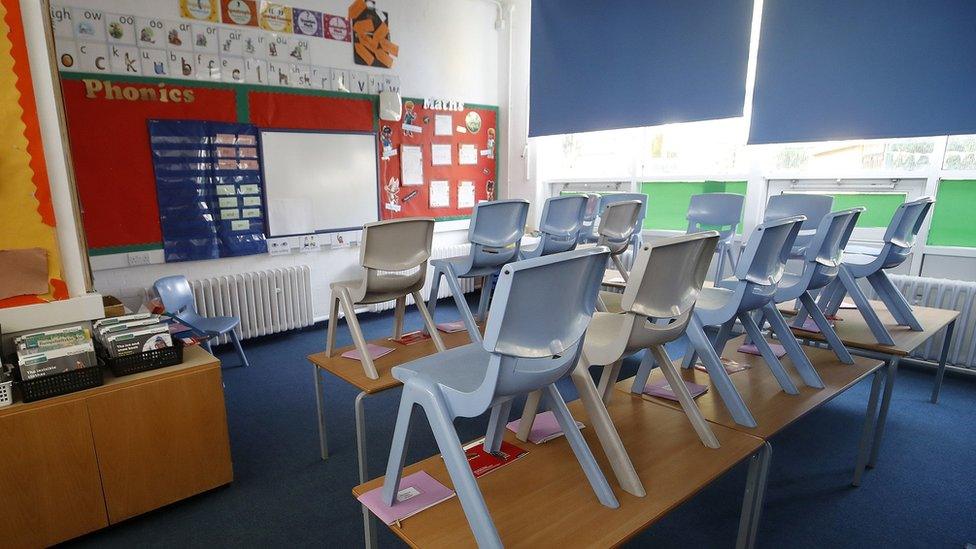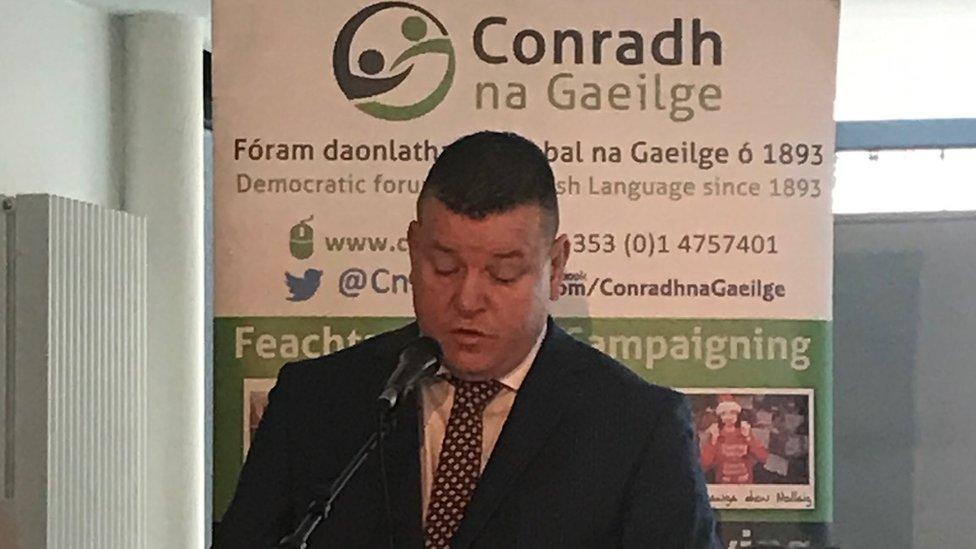Coronavirus: Education Authority material 'excludes' Irish language
- Published

The Education Authority said it received no requests for Irish translations from schools
The Education Authority (EA) has been accused of "excluding" Irish speaking pupils from online learning materials.
The EA has produced additional resources in 11 languages to help children learn while schools are shut.
The materials, however, are not available in Irish and that has been criticised by campaigners.
The EA said it had prioritised translations for the most vulnerable children at risk of being disconnected from school.
The resources include health and learning materials as well as guides to education websites and apps.
They are aimed at children of families who do not have English as their home language. There are also links to websites with resources for autistic children.
'Irish an afterthought'
The materials are available in English and 10 other languages including Arabic, Kurdish Sorani, Polish, Slovak and Portuguese.
Suggested daily timetables, activities for pupils learning at home and coronavirus advice from the Public Health Agency (PHA) are also provided.
But Irish language organisation Conradh na Gaeilge has accused the EA of overlooking pupils who speak Irish at school and at home.
“It is hugely disappointing that Irish has once again been excluded from a range of languages and translated resources," it said.
"Once again the 6,000 young people who choose to be educated through Irish seem to be little more than an afterthought to the EA.
"Hopefully incoming legislation from the New Decade, New Approach deal will help address this long-term exclusion.”

'No Irish translation request'
In response, an EA spokesperson said they had received a number of urgent requests for translated materials from charities and support groups working with families with limited or no English, including asylum seekers and refugees.
"Working with these groups, we have translated information and resources in an effort to remove barriers for the most vulnerable, disconnected children and their families," they said.
"Translated information includes important PHA advice and guidance relating to Covid-19, resources to support remote learning, information on food banks and interim arrangements for free school meals.
"We have prioritised translations based on the most vulnerable children who are at risk of being disconnected from school and on the 10 most commonly used languages of school pupils in Northern Ireland.
"We have received no requests for Irish translations but we will work to accommodate further requests, as required.”
The New Decade, New Approach deal included the appointment of an Irish language commissioner who would set standards public bodies have to meet to deliver services in Irish.
However, that commissioner, and a counterpart for Ulster Scots, have not yet been appointed.
Separate figures from the Department of Education show that the number of pupils learning in Irish has risen this year.
In 2019/20, there are 6,813 pupils in Irish medium education, a rise of 300 on 2018/19.
- Published23 January 2020
